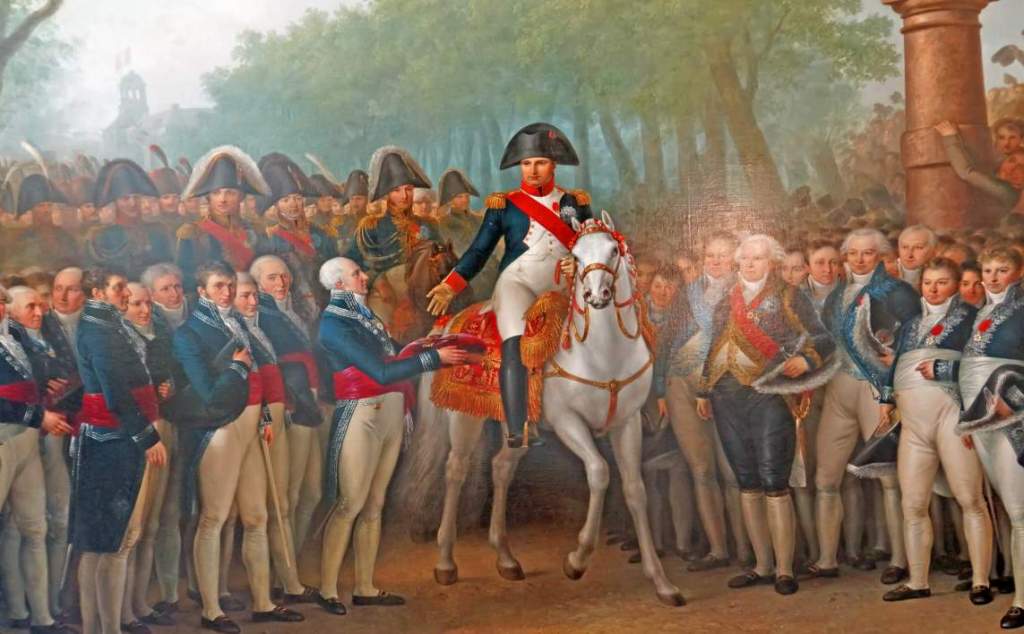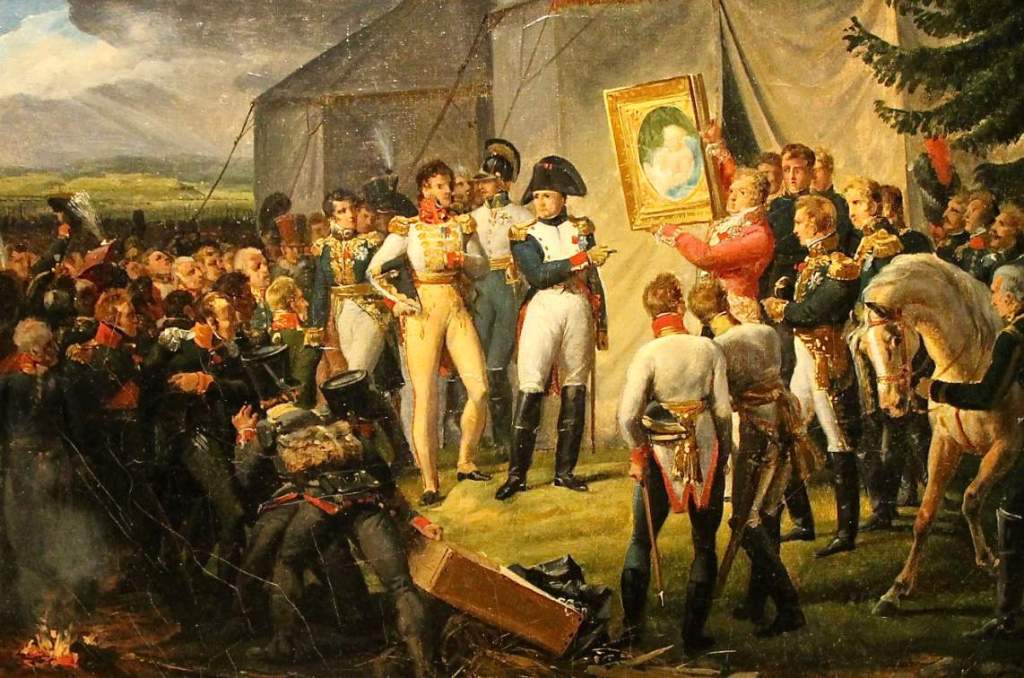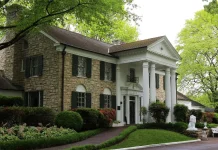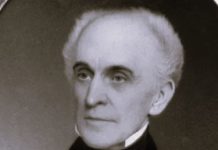The Rise and Fall of Napoleon
Nothing like the career of Napoleon Bonaparte has ever been seen in modern history, for anything in the nature of a parallel one has to go back more than a thousand years to Alexander the Great. Emperor of France (1769-1821) Not a drop of French blood flowed through the veins of Napoleon Bonaparte, who for 16 years was the absolute master of France. He was barely a Frenchman by birth, for the island of Corsica, in which his native town of Ajaccio was situated, was handed over to France by the republic of Genoa in 1768, only a year before.
Napoleon was born, on August 15, 1769. He was five foot, six & half inches tall. Napoleone Buona’ Parte— such was the Italian name under which he was christened was a typical Corsican, “moody and exacting but withal keen, brave, and constant. for years his most intense emotion was hatred of France, which he regarded as an oppressor of his native land. He earned this feeling with him to the military school and Brienne, to which he was admitted at the age of nine. At 16, he began his service in the French army as second lieutenant of artillery, but even so, the stirring events of the French Revolution, which broke out in 1789, aroused little interest in him.
His thoughts were all on Corsica, and he absented himself from the army for long periods to engage in plots at home & and schemes were not successful, however, and it was with difficulty that he escaped to France, an outcast from his native shores His love for Corsica was now dead. He gave his name its French form, and he married in 1796 Josephine Beauharnais, the widow of a Frenchman.

Opportunity Comes to the Corsican In 1793, at Toulon, Napoleon first gave evidence of his energy and genus directing the artillery m the siege of that rebellious French city But for a time fate was against him. Robespierre and the Jacobins, -with whom he had established friendly relations, fell from power, and in 1795 Napoleon was back once more m Pans, deprived of his command, without money or friends, and suspected because of his Jacobin connections.
That year was the last year of misfortune for a time. Therefore, in October, with what Carlyle called a “whiff of grapeshot,” he defended the Convention against a radical Parisian mob. The Directory rewarded the young man by making him commander of the French army of Italy, against the Austrians and their allies.
The campaign showed General Bonapaite’s great military genius and stirred to life again great ambition. Hence, in 1796 he defeated the Sardinian troops five times in eleven days, threatened Turin, and compelled peace.
Then Bonaparte turned eastwards against the Austrians. His bravery was shown when, in the face of a withering fire, he forced his way across the budge at Lodi—an exploit that won from his troops the affectionate name of the “Little Corporal”.
He then carried the way into Austria itself, and had advanced to within 80 miles of Vienna when the enemy offered peace By the treaty of Campo Formio France was given Belgium (the Austrian Netherlands), and accepted the Rhine as the eastern frontier of the republic and the Cisalpine Republic which Napoleon had erected in northern Italy In return he gave to Austria most of the territories of the old Venetian Republic, winch he had destroyed Napoleon.
Napoleon next persuaded the Directory to send him to Egypt. There on the banks of the Nile, he expected to imitate the exploits of Alexander the Great and at the same time strike a blow at Prance’s England, by opening a route to India. The Battle of the Pyramids, fought near Cairo (July 1798), put Egypt at his mercy, but his fleet was destroyed by the British m the Battle of the Nile at Aboukir Bay, and he was cut off from reinforcements. At Acre, in Syria, British sailors defeated Bonaparte’s plans and threw him back on Egypt. Thus, at last, disquieting news led him to return secretly to France.

There he found the Directory discredited Bonaparte joined accordingly in a plot which in November 1799, overthrew the Directory and set up in its place a government called the Consulate, with Bonaparte as the first of the three consuls. Three years later he became First Consul for life.
Napoleon had now grasped political power and became the master of France. His old ambition was realized, but already new ones were forming. He had failed to build up a great eastern empire. He now aspired to restore the western one of Charlemagne By the battle of Marengo (1800). In which he defeated the Austrians and by the Treaty of Amiens.
In 1802 France was at peace with the whole world for the first time since 1792 But even in peace the First Consul continued to carry out his ambitious plans In the 14 months before the conflict began anew he became president of the Italian Republic intervened in Switzerland, annexed Piedmont, Parma, and the island of Elba to France, planned the partition of Turkey and the foundation of a colonial empire to include America, Egypt, India and Australia.
The powers felt compelled to renew the conflict, but still, victory smiled on Napoleon by his complete defeat of the Austrians and Russians at Austerlitz (December 2, 1805), by his crushing blow to the Prussians at Jena (October 14, 1806), and by the battle of Friedland against the Russian (June 14, 1807) Napoleon brought most of Europe to his feet.
Only one obstacle apparently barred his way to the complete mastery of Western Europe and that was Great Britain. In 1805 he had planned to invade our island and reduce it to submission But the favorable moment never came, and after England’s Navy under Nelson had destroyed the French and Spanish fleets in the battle of Trafalgar (October 1805), Napoleon had no chance to conquer Britain, for without command of the sea he could not transport his armies.
Napoleon’s fame rests not only on his genus but also on his work as a state. A sound currency was established in France. The Bank of France created roads and canals to improve and agriculture and industry fostered.
The Roman Catholic Church, which had been suppressed during the Revolution, was re-established by an agreement with the Pope, known as the Concordat of 1801. The old confused system of law was swept away, and Napoleon founded a new system of rational law “the Code Napoleon”.
Step by step now, Napoleon was building up his own position. In 1804 he secured a popular vote sanctioning a change from the Consulate to an Empire, with the title “Emperor of the French” and the right to hand down the throne to his descendants. Moreover, in 1809 he divorced Josephine and married Mane Louise (1791-1847), the 18-year-old daughter of the Austrian emperor, thus allying himself with one of the oldest royal families in Europe. He also set himself, also, to the work of reorganizing Europe. The Cisalpine Republic was now changed to a monarchy, and he himself was crowned the “king of Italy”.
Roll up that map of Europe, and there will be no need for it for ten years to come,” the English minister Pitt had said after the battle of Austerlitz. For almost that period Napoleon changed the map at his will. Thus, his stepson Eugene was made viceroy of Italy. Napoleon’s brother Louis received “the kingdom of Holland and Joseph became king first of Naples and then Spain. General Murat, Naples and then of Spam—General Murat, who had named Napoleon’s sister, succeeding to the vacant Neapolitan throne. His dependents, the Banks of Bavaria and Wurttemberg, were given the ranks of kings. The shadowy Holy Roman Empire was dissolved in 1806.
The high point m Napoleon’s career Was reached in the years which followed the peace of Tilsit (1807). There on board a raft in the river Niemen the Tsar Alexander of Russia was won over the Napoleons Plans. Napoleon and he were to divide Europe between them. In return, Alexander was to aid Napoleon in his continental system. The object of this was to close Europe to England’s commerce. At one time or another, every state of continental Europe except Turkey and Portugal was forced into this commercial system. But all in vain.
Napoleon had aroused a great force, which was to bring about his ultimate downfall the spirit of nationalism. In Spain, the patriotic fire first blazed forth in 1808. The British sent troops to help in this “Peninsular War 1808-14”. and little by little the French forces were pushed back beyond the Pyrenees.
Austria plucked up the courage to renew the struggle but was crushed at the awful battle of Wagram (July 1809). Then Napoleon struck at Russia for deserting his unworkable Continental system Invading Russia, and he reached Moscow. Suddenly, the day after his arrival (September 14, 1812), flames burst forth, and nine-tenths of the city was reduced to ashes It was impossible to winter in the city, and on October 19 began the tragic retreat
Napoleon’s great career of conquest was over The flames of national patriotism burst forth in an uprising of Europe Austria, Russia, and Prussia all joined with Great Britain in the War of Liberation With renewed effort Napoleon raised new armies and won a few unimportant victories, but in the three days’ battle of Leipzig (1813) the French were outnumbered and outfought Slowly but surely the allies then closed in upon Paris.
On the last day of March 1814, they entered the French capital, and Napoleon was forced to abdicate (April 11, 1814). He was allowed to retain the title of emperor together with the little Island of Elba. In the person of Louis XVIII, the Bourbons returned. But to remain quietly so near France without frying to regain his lost power was impossible for Napoleon.
In March 1815, he slipped quietly away from Elba and landed in France. As by magic an army rallied to his support, and for a brief hundred days, he enjoyed a return of his former glory. But the allies again united their forces against him and on the field of Waterloo, he was decisively and finally defeated.
Therefore, to avoid falling into the hands of Blucher, who had sworn to shoot him as an outlaw, Napoleon sought refuge on board a British man-of-war (H M S Bellerophon) and surrendered. He was now sent to the lonely British island of St Helena, in the South Atlantic, 1,200 miles west of Africa. Where Napoleon lived in exile until his death on May 6, 1821.
Read More – Scola Tower – Abandoned 17th Century Military Building







